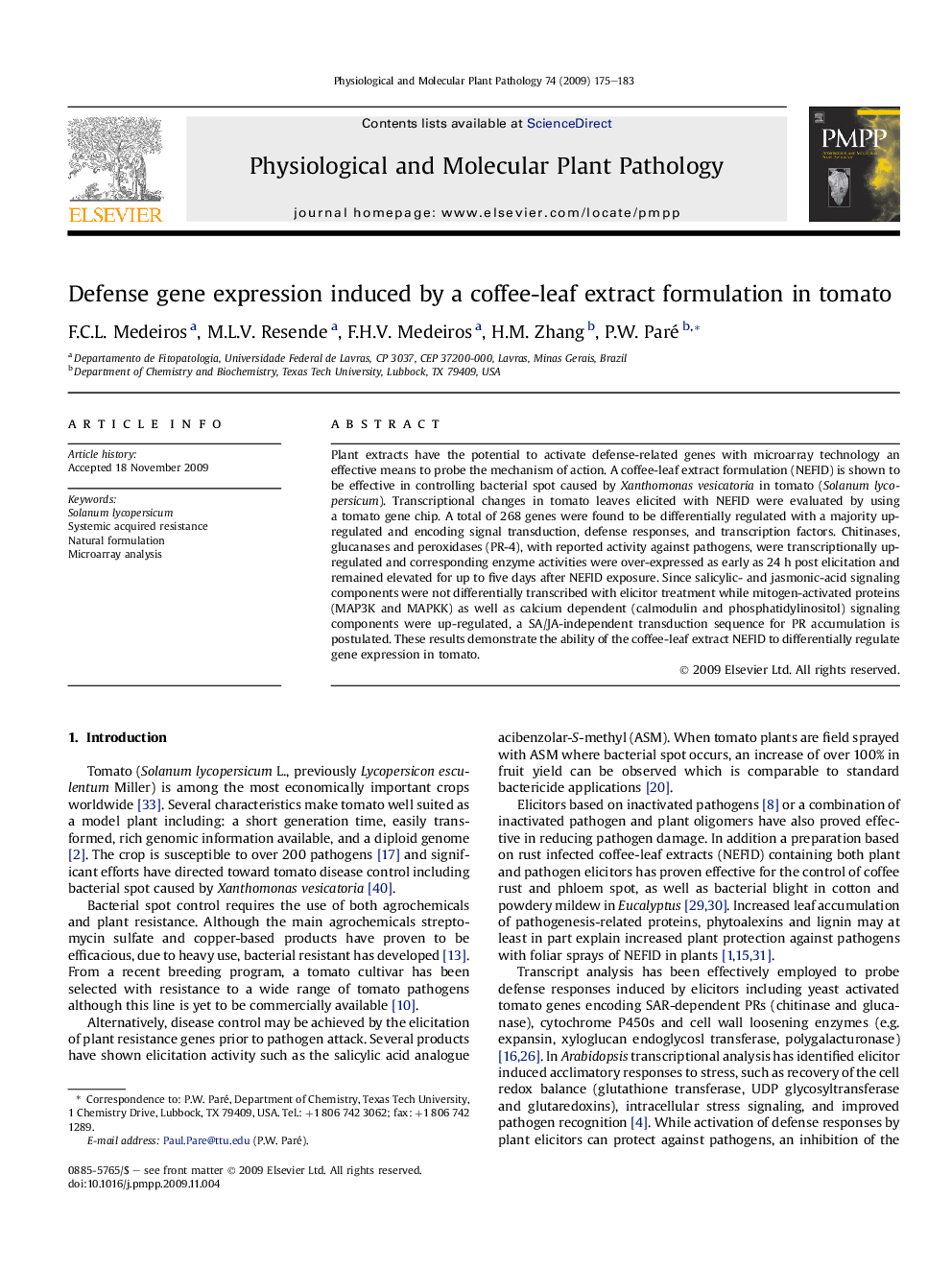| Article ID | Journal | Published Year | Pages | File Type |
|---|---|---|---|---|
| 2836650 | Physiological and Molecular Plant Pathology | 2009 | 9 Pages |
Plant extracts have the potential to activate defense-related genes with microarray technology an effective means to probe the mechanism of action. A coffee-leaf extract formulation (NEFID) is shown to be effective in controlling bacterial spot caused by Xanthomonas vesicatoria in tomato (Solanum lycopersicum). Transcriptional changes in tomato leaves elicited with NEFID were evaluated by using a tomato gene chip. A total of 268 genes were found to be differentially regulated with a majority up-regulated and encoding signal transduction, defense responses, and transcription factors. Chitinases, glucanases and peroxidases (PR-4), with reported activity against pathogens, were transcriptionally up-regulated and corresponding enzyme activities were over-expressed as early as 24 h post elicitation and remained elevated for up to five days after NEFID exposure. Since salicylic- and jasmonic-acid signaling components were not differentially transcribed with elicitor treatment while mitogen-activated proteins (MAP3K and MAPKK) as well as calcium dependent (calmodulin and phosphatidylinositol) signaling components were up-regulated, a SA/JA-independent transduction sequence for PR accumulation is postulated. These results demonstrate the ability of the coffee-leaf extract NEFID to differentially regulate gene expression in tomato.
